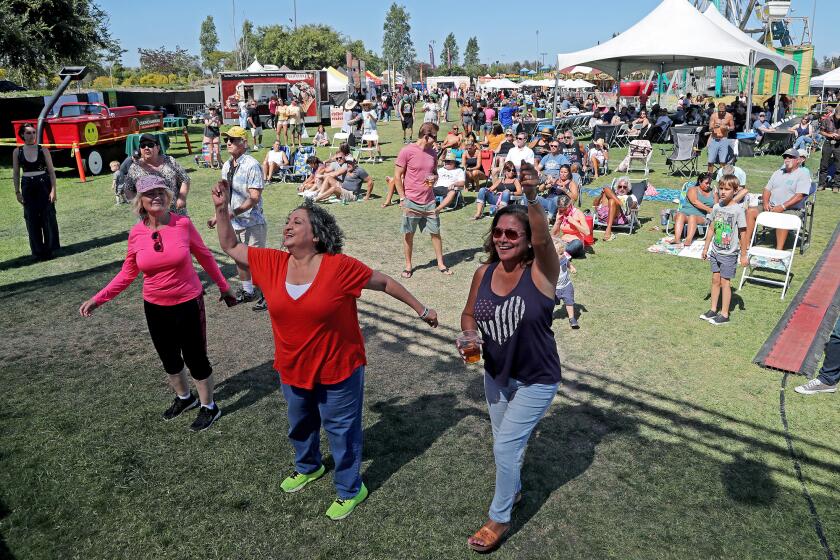Watching for ‘minor’ offenses
- Share via
NOTEBOOK
I felt strange and out of place sitting in a van with two police
officers and an investigator with the state’s department of alcoholic
beverage control.
They held their breaths as they watched an 18-year-old police
cadet walk into a liquor store. We were all waiting to see if she
would come out of the store with a six-pack of beer in her hands.
She didn’t. With disappointment we went to the next liquor store.
We did that a total of 18 times last Thursday. It was part of an
“under 21” decoy operation that the police department conducts about
once a month to find out if liquor stores are dutifully checking IDs.
The liquor stores are picked at random, a wire is placed on an
underage cadet who is then sent in.
If the store clerk sends her packing they pass, and the entourage
moves on. For doing the job right the store owners get a letter in
the mail thanking them for their compliance and cooperation.
“We kind of pat them on the back for doing a good job,” Huntington
Beach Police Det. Erik Krause said.
Anyone who saw 18-year-old Julia would instantly know that she
isn’t old enough to buy beer. If her young appearance wasn’t a
giveaway then the gray hooded Ocean View High School sweatshirt that
she was wearing should have been.
“Do you have ID?”
That was the first thing that most store clerks asked when Julia
plopped the six-pack of Budweiser on the store counter.
“Yeah,” she’d say as she took it out of her pocket and handed it
to them.
“You’re not 21, come back when you are.”
That’s what a couple of the clerk’s said. It’s just what they are
supposed to do.
Some of the clerk’s yelled at Julia and waved their fingers at her
while telling her not to come back. One clerk asked her why she
wanted beer and another told her to bring a California ID with her
next time.
If someone makes the mistake of selling the beer to Julia, the
officers walk into the store, close it down and cite the clerk.
Out of 18 stores, only one sold Julia the beer. It was the very
last store that the detectives decided to hit before calling it a
night.
As the police officers walked out of the van and made their way
toward the store entrance, the clerk knew he was in trouble. He tried
to not show any emotion, but he knew he was in for it. The store
owner was going to get a fine and he was probably going to lose his
job.
It almost looked like no one would break the law that night.
Krause was surprised with the results.
“This is the lowest we’ve ever gotten,” he said of the one
citation.
Even stores that had been cited before, apparently learned their
lesson and didn’t sell her any liquor.
There were a couple of close calls that got us all excited. A
clerk began to ring up a sale before realizing that Julia was
underage. The clerk took the bag away and Julia walked out of the
store empty handed.
Julia quickly got into her role and began to get frustrated after
she walked out of each store empty handed.
“From what everyone said I thought they would sell to me,” she
said.
When she finally triumphed and succeeded in buying the beer, it
wasn’t a good thing, but it’s what the detectives were waiting for.
While the decoy program may seem trivial, it’s a program that
works, police said. Store owners are scared that they’ll be fined so
they ask for ID. Julia’s low success rate shows that the program is
working, said Sgt. Gray Dove.
“It’s a golf game the lowest score wins,” Krause said.
So I sat there in the unmarked van, somewhere I never thought I’d
be, with police detectives during an undercover operation. Imagine,
me, I thought, waiting with anticipation to bust someone?!
But I felt good when the officers cited the store clerk -- it felt
right. This guy sold beer to a girl who was obviously underage. He
was wrong to do it and while it isn’t murder, it’s still wrong.
All the latest on Orange County from Orange County.
Get our free TimesOC newsletter.
You may occasionally receive promotional content from the Daily Pilot.









